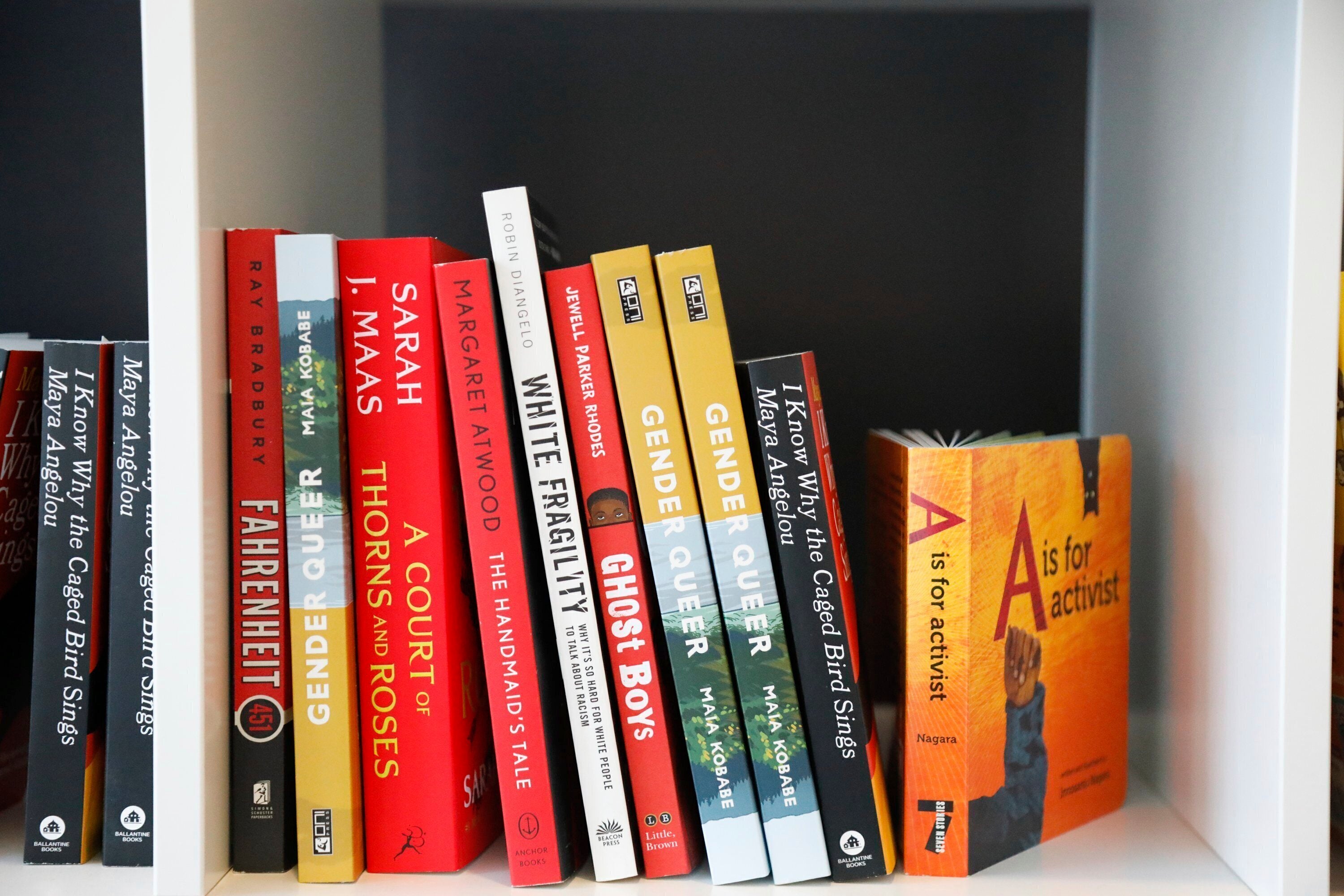Federal lawsuit against Florida school district that banned books can move forward, judge rules
A federal judge has ruled that a lawsuit may move forward against a Florida Panhandle school district over its removal of books about race and LGBTQ+ identities from library shelves

Your support helps us to tell the story
From reproductive rights to climate change to Big Tech, The Independent is on the ground when the story is developing. Whether it's investigating the financials of Elon Musk's pro-Trump PAC or producing our latest documentary, 'The A Word', which shines a light on the American women fighting for reproductive rights, we know how important it is to parse out the facts from the messaging.
At such a critical moment in US history, we need reporters on the ground. Your donation allows us to keep sending journalists to speak to both sides of the story.
The Independent is trusted by Americans across the entire political spectrum. And unlike many other quality news outlets, we choose not to lock Americans out of our reporting and analysis with paywalls. We believe quality journalism should be available to everyone, paid for by those who can afford it.
Your support makes all the difference.A lawsuit can move forward against a Florida Panhandle school district over its removal of books about race and LGBTQ+ identities from library shelves, a federal judge ruled Wednesday.
U.S. District Judge T. Kent Wetherell II, based in Pensacola, ruled that the writers’ group PEN America, publisher Penguin Random House, banned authors and parents have standing to pursue their claims under the First Amendment's free speech protections, while denying a claim under the 14th Amendment’s Equal Protection Clause.
"We are gratified that the Judge recognized that books cannot be removed from school library shelves simply because of the views they espouse, and are looking forward to moving forward with this case to protect the constitutional rights of the plaintiffs,” attorney Lynn Oberlander said in a statement.
The federal lawsuit alleges the Escambia County School District and its School Board are violating the First Amendment through the removal of 10 books.
PEN America, which has tracked school book bans, advocates for literary freedoms and has a membership of 7,500 writing professionals, including authors whose books have been removed or restricted in the school district. Penguin Random House, a massive publisher, has published books that have been removed or restricted by the district.
The lawsuit says the removals stem from objections from one language arts teacher in the county, and in each case the school board voted to remove the books despite recommendations from a district review committee that deemed them educationally suitable.
The teacher's formal objections to the books appear to draw on materials compiled by a website that creates reports on books it deems ideologically unsuitable for children, according to the lawsuit.
In one example it cites, the teacher admitted she had never heard of the book “The Perks of Being a Wallflower,” by Stephen Chbosky, but filed an objection that contained excerpts and phrasing from the book ban website.
Among the other removed books are “The Bluest Eye,” by Toni Morrison, “The Nowhere Girls,” by Amy Reed, and “Lucky,” by Alice Sebold. The lawsuit said more than 150 additional books are under review by the school board.
Attorneys for the Escambia County School District did not immediately respond to a request for comment.
The suit does not name Gov. Ron DeSantis as a defendant, though the Republican has championed policies that allow the censorship and challenging of books based on whether they are appropriate for children in schools.
DeSantis, who is running for president, has leaned heavily into cultural divides on race, sexual orientation and gender to attract conservative voters in the Republican primary elections, though he and others trail significantly behind former President Donald Trump.